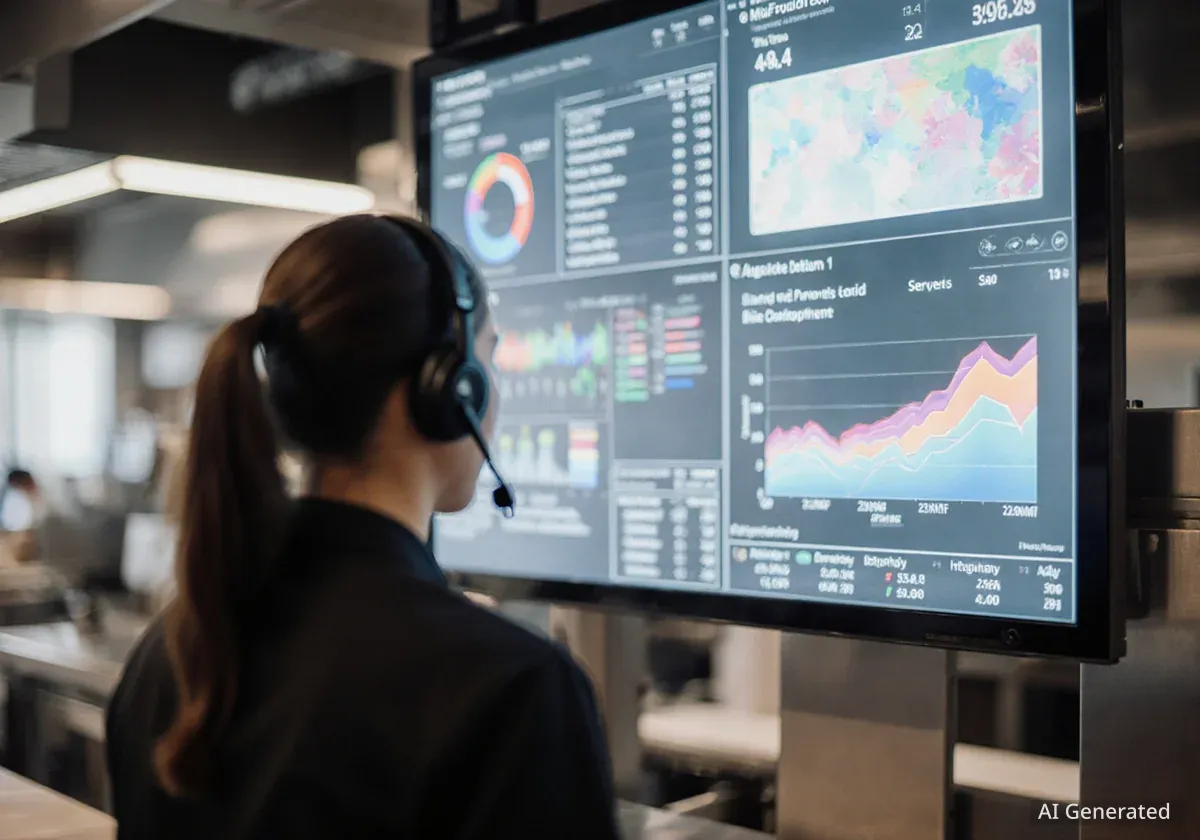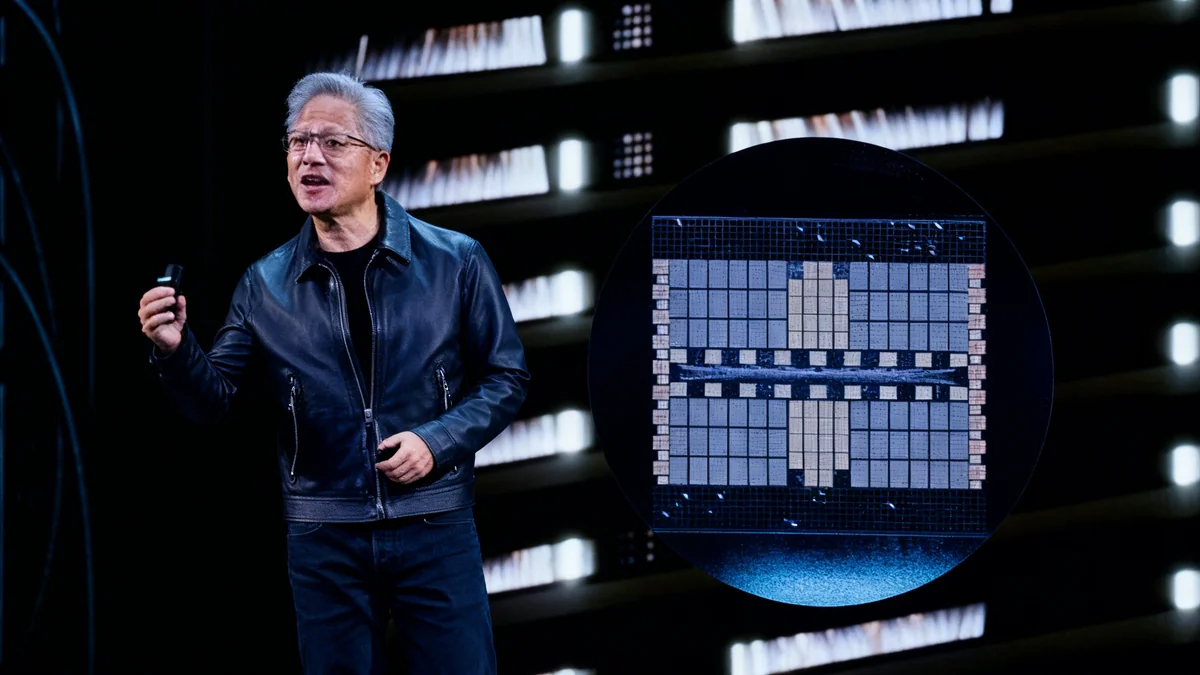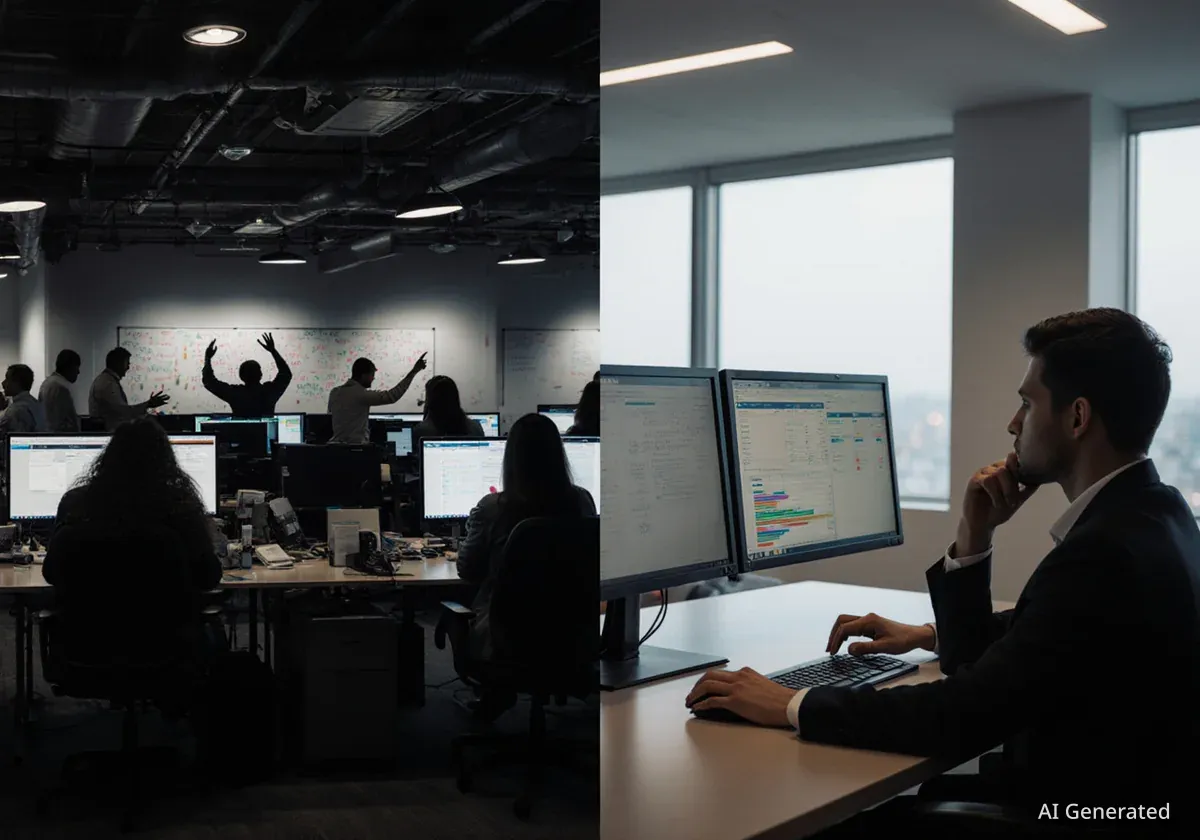The American banking corporation Citi has initiated a pilot program involving 5,000 employees to test a new agentic artificial intelligence platform. The system, known as Stylus Workspaces, is designed to automate complex tasks and improve productivity, though the company remains uncertain about its long-term impact on staffing levels.
The six-week trial aims to measure the technology's return on investment by having the AI perform multi-step workflows, such as customer research and data analysis. This move comes as industry analysts express caution about the immediate benefits and high costs associated with advanced AI agents.
Key Takeaways
- Citi is testing its Stylus Workspaces AI platform with 5,000 employees in a pilot program lasting up to six weeks.
- The platform uses "agentic AI" to handle complex, multi-stage tasks by integrating with internal and external data sources.
- Citi's Chief Technology Officer, David Griffiths, stated the goal is to increase productivity, but the effect on future employee numbers is unknown.
- The pilot occurs amidst industry analysis from Gartner suggesting many agentic AI projects may fail due to high costs and unclear business value.
Details of the AI Pilot Program
Citi has upgraded its internal Stylus Workspaces platform, first announced in December of the previous year, to incorporate agentic AI capabilities. The current pilot program has been rolled out to a significant group of 5,000 users across the organization.
The trial is scheduled to run for a maximum of six weeks. During this period, the company will closely monitor the platform's performance to determine its overall impact on efficiency and to calculate a clear return on investment. The primary objective is to see if the technology can meaningfully accelerate complex business processes.
In a public statement, Citi outlined its expectations for the platform. The company hopes it will empower employees to manage longer and more intricate tasks with greater speed and insight, supporting the firm's broader goal of becoming more technology-driven and productive.
What Is Agentic AI?
Agentic AI refers to artificial intelligence systems that can autonomously plan and execute a series of actions to achieve a specific goal. Unlike simpler AI models that respond to single prompts, AI agents can break down a complex request into smaller steps, gather information, use different tools, and adapt their approach to complete the objective without constant human intervention.
Capabilities of the Stylus Workspaces Platform
The enhanced Stylus Workspaces platform is designed to function as a sophisticated digital assistant for Citi employees. It can perform a range of tasks that traditionally require significant manual effort.
Examples of its capabilities include researching a customer by pulling information from both public sources and Citi's internal databases. The system can then synthesize this data to construct a comprehensive customer profile and even translate the final document into another language.
To achieve this, the platform integrates directly with core Citi systems. It links to internal data repositories, project management tools, and other essential enterprise software. According to the company, it also has the ability to perform web searches and conduct analysis on the information it finds.
Multi-Model Approach
Citi's Chief Technology Officer, David Griffiths, revealed to The Wall Street Journal that the platform is not reliant on a single AI model. It utilizes a variety of models, including Google's Gemini and Anthropic's Claude, to power its functions. The company has also implemented input limits to manage and control the operational costs of using these powerful systems.
Leadership on Productivity and Workforce Evolution
The potential impact of such powerful automation on the workforce is a central question. David Griffiths, Citi's CTO, addressed this directly, acknowledging the uncertainty surrounding the long-term effects on staffing.
"Does it mean that we need less people? I don't know," Griffiths said. "It certainly means that we would get a lot more done. And we'll see how the workforce evolves with that massive boost of capacity that we're getting here."
The official company line emphasizes augmenting employee capabilities rather than replacing them. In a statement, Griffiths said that staff involved in the trial "can focus less on manual tasks and more on the big ideas that drive our business forward." The goal is to shift human focus from routine processes to higher-value strategic work.
Broader Industry Skepticism and the AI Hype Cycle
While Citi moves forward with its large-scale pilot, the broader technology industry is adopting a more measured view of agentic AI. Research and advisory firm Gartner has provided analysis that highlights the potential challenges ahead.
According to a Gartner forecast, more than 40 percent of agentic AI projects could be canceled by the end of 2027. The primary reasons cited for this potential pullback include escalating costs, an inability to demonstrate clear business value, and insufficient risk controls—all significant concerns for a financial institution.
Performance and Reliability Concerns
Further research has pointed to performance issues with current agentic AI technology. One study highlighted a success rate for tasks carried out by AI agents of just 30 to 35 percent. This underscores the need for rigorous human oversight to check the accuracy and reliability of the AI's output, a critical requirement in the highly regulated banking sector.
In its well-known "Hype Cycle" for emerging technologies, Gartner has positioned agentic AI at the very beginning, in a phase called the "innovation trigger." This indicates that the technology is new and generating significant interest, but its practical applications are not yet proven.
Meanwhile, generative AI, a more established technology, is reportedly sliding into the "trough of disillusionment." Gartner noted that many organizations using GenAI are seeing uneven returns on investment. Despite this, the firm advises companies against delaying adoption, warning that they risk falling behind early adopters who overcome these initial hurdles.





